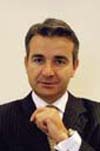Ask someone which European country specialises in private banking and the likely answer is Switzerland or Luxembourg. Austria, which has recently grown competitive in this field, may also be mentioned. Chances are that Germany will not be mentioned. Yet, despite higher taxes and tighter regulation than in Switzerland or Luxembourg, Germany boasts vibrant private banks and they are just as old and steeped in tradition as those in Switzerland. The first German private bank, Berenberg in Hamburg, dates back to 1590 and the 32 others have been serving wealthy clients for at least a century.
German private banks exude all the tradition that a visitor might expect: fine china for tea and coffee, grandfather clocks, polished mahogany tables and ornate portraits of the men who headed the banks in centuries past. An example is Metzler’s headquarters in central Frankfurt, which doubles as a private residence for Friedrich von Metzler, its chief executive, and his family. Mr von Metzler grew up on the upper floors and his 91-year-old mother still lives on the sixth floor.
Different breed
There are, however, two crucial differences between German private banks and Swiss ones. First, while private banking is a major source of profit for German houses, its growth is limited by the fact that in Germany, the rich pay higher taxes and face greater disclosure requirements. This discourages many of them – particularly those with more than a few million euros and a need for discretion – from keeping their assets in the country.
|
| Claus-Günther Budelmann, one of Berenberg’s three managing partners, says: “Internationally speaking, Switzerland is still the wealthy client’s preferred choice as asset manager. We know this because, as a shipping bank, we have acquired clients from Greece, the US and the Middle East. In the past, they always asked us, don’t you have an office in Switzerland? So, to satisfy them and others, we opened a branch in Zurich in 1988.” |
The second big difference between German and Swiss private banks is that, due to Germany’s position as a global industrial giant, many of its private banks do a lot of corporate business, particularly with the Mittelstand (the small and medium-sized firms that form the economy’s backbone). Indeed, they have a big advantage in the business due to their own deep family roots.
|
| “If you have a personal stake in the bank, as our managing partners do, you talk to directors in a Mittelstand business as one entrepreneur to another,” says Matthias Graf von Krockow, CEO of Cologne-based Oppenheim, Germany’s biggest private bank with €32bn in balance sheet assets. |
High-margin niche
The private banks’ corporate business is not geared towards lending. The reason for that is that in overbanked Germany, where state-owned banks and cooperatives control 80% of the market and big commercial banks fight over the rest, loan margins are meagre and credit risk can be too high. Instead, following the emergence of a mature capital market in the 1990s, the banks have specialised in high-margin services like asset management, investment banking mergers and acquisitions [M&A], initial public offerings [IPOs] and brokerage. Their corporate business has not only been a valuable source of profit alongside private banking, it has transformed some, such as Oppenheim and Metzler, into major asset managers and investment banks.
“In the past two years, we have attained a respectable position in M&A in Germany,” says Mr Graf von Krockow. “Having advised on $4.7bn worth of M&A transactions, a recent ranking from Thomson Financial puts us in the sixth spot. The only other German bank ahead of us is Deutsche Bank, which is number one.”
|
| For his bank, Mr von Metzler says: “Between 2002 and 2005, we advised on 108 investment banking transactions with a value of more than €30bn. These include M&A deals and privatisations done primarily with DAX companies and in the Mittelstand sector. Eighty per cent of them were also cross-border transactions. |
“So, when it comes to investment banking, I would put us on the UEFA Cup level,” he adds, referring to the secondary European club football competition that is below the illustrious Champions League. The ‘Champions League’ of German investment banking includes the likes of Deutsche Bank, Goldman Sachs and Citigroup, although it appears that Oppenheim is qualifying for that league.
Champions League
In asset management, however, Oppenheim is certainly a member of the Champions League, looking after €136bn in assets. Roughly speaking, half of those assets come from institutions – including insurers, pension funds, firms and foundations – and half from private clients. Metzler has €30bn under management, four-fifths of which comes from institutions. Metzler’s speciality is pension management and fund administration (back-office work).
Outside of Germany, Oppenheim uses the low-tax and light-regulation environment of Luxembourg to launch funds. It is also active in Italy, Prague and London, where it recently bought a controlling stake in a provider of fund-of-hedge funds. The bank is planning to open an office in Warsaw in 2007 and Mr Graf von Krockow sees Switzerland and Spain as other possible markets for expansion.
Metzler uses Dublin as its low-tax and light-regulation environment for launching funds. Since the 1970s, Metzler has also been doing business in the US, both on the real estate investment side and via a 50-50 venture with Payden & Rygel, an asset manager based in Los Angeles. Recently, it opened an office in Tokyo to sell funds to Japanese institutional investors; and it is considering other Asian possibilities like Hong Kong or Shanghai.
While Oppenheim is, as Mr Budelmann puts it, “in a completely different league”, Berenberg and MM Warburg, another Hamburg bank that has been family-owned for generations, are very much Metzler’s equals in terms of asset management and investment banking. At €25.3bn, Warburg’s assets under management are a little higher than Metzler’s. Warburg also scored a major coup last July by recruiting Bernd Borgmeier, Oppenheim’s former chief investment officer, as its new head of asset management and private banking. Mr Borgmeier, who was instrumental in building Oppenheim’s institutional business, joined Warburg on January 1.
Berenberg has €14bn under management, half of which comes from institutions and the other half from private clients. Berenberg has also emerged as a specialist in equity sales and IPOs for the small and midcap sector – a key reason for a recent European expansion. Beyond Zurich, the bank has opened offices in Düsseldorf, Bremen, Frankfurt, London, Paris and Milan, with the London office specialising in IPOs. But Berenberg’s most impressive quality is its ability to make money: in 2005, it was by far Germany’s most profitable bank, with an after-tax return on equity equalling 39.4%.
“The paradigm has changed for German banks. Growing assets is no longer seen as the key to success, but providing specialised financial services,” observes Mr Budelmann. “Consider that 20 years ago, when banks used to rank themselves according to balance sheet assets, 70% of our revenues came from interest and 30% from commission related to financial services. Today, 80% comes from commission and only 20% from interest. Our balance sheet assets have also remained at about €2bn for the past decade.”
Beyond Berenberg, Oppenheim, Metzler and Warburg, there are only two major German private banks that are still in the hands of their family founders. They are Bankhaus Lampe in Westphalia, owned by the Oetker family, whose other interests are shipping and foodstuffs; and Hauck & Aufhäuser, a Munich-based asset manager specialising in risk management for the Mittelstand (see table download).
Other German private banks are now owned by foreign houses. HSBC acquired Trinkaus & Burkhardt in Düsseldorf in 1992 and Belgium’s KBC group bought Merck Finck & Co in Munich seven years later. Dutch bank ABN AMRO owns Delbrück-Bethmann-Maffei, which, like Merck Finck, mostly does private wealth management. And in late 2004, Switzerland’s UBS acquired Sauerborn Trust, a private wealth manager based in Bad Homburg near Frankfurt.
Impressive profitability
Regardless of who owns them, German private banks have impressed with their profitability. A recent study of 14 of the banks, including the six family-owned ones, puts their average return on equity at 13% annually between 2000 and 2005. This is a respectable figure considering that bearish equity markets and a stagnant Germany economy marked three years of that time.
It is not all good news, however. Context Management, a local consultancy that compiled the study, points out that with an average cost-to-income rate of 80%, German private banks are worse off than their Austrian peers, whose ratio is 64.3%. Katja Liese, private banking expert at Context Management, also harbours doubts about the sustainability of the banks’ profitability. Due to the positive financial markets of recent years, “many have been able to improve their bottom lines with commission earned from trading”, she says. But when economic times again become as difficult as they were in 2002, the smaller banks could be in trouble due to a high cost base and scant revenues, she says. As an example, she cites Merck Finck.
|
| Dirk Drechsler, CEO of Hauck & Aufhäuser, agrees with Ms Liese’s assessment, adding: “To survive as a private bank over the long haul, you need to reach critical mass, which I would put at between €5bn and €10bn in assets under management. With that, the personalised advice that a private bank provides enables it to achieve a higher return, even if my cost base is similar to that of bigger banks.” |
However, Merck Finck CEO Alexander Mettenheimer says that his bank is “well above the critical mass of €5bn under management”. He also points out that since 2000, when Merck Finck made a decision to concentrate on asset management, particularly for high-net-worth individuals, the bank has been thriving. As part of the refocus, it acquired the private banking arm of German in 2002. At about the same time, it pulled out of the corporate finance business, although it still does some institutional asset management. Brokerage is another of the bank’s strong suits, says Mr Mettenheimer.
Fierce competition
Beyond, in many cases, a high cost base, Germany’s still-independent private banks face fierce competition from big banks, such as Deutsche Bank, UBS, ABN AMRO or HSBC. Just like the smaller banks, they are doing their utmost to win over Mittelstand clients and high-net-worth individuals. They know that an increasing number of Germans are becoming wealthier by, for example, inheritance and that an increasing number of Mittelstand firms are going public.
“Times have become harder for us because clients are becoming more demanding and less loyal,” says an insider at a German private bank, who wishes to remain anonymous. “It is no longer sufficient for a private bank to boast of its centuries of tradition. The new generation of wealthy people don’t care as much about that as they do about returns. If Deutsche or UBS offers them a better deal, they will go there.”
German private bankers admit that their business has grown tougher amid competition from big banks. But they also stress that their independence is a key advantage vis à vis those institutions. “Our independence and flexibility are our greatest assets. Thanks to them, we can react very quickly and effectively to our clients’ needs. At the same time, many of the bigger listed banks lack these qualities,” says Mr Graf von Krockow.
The independence factor
Mr Drechsler says: “Independence is what sets private banks like ours apart. For example, we don’t sell any of our own funds, but choose the best from the nearly 8000 funds available in Germany. The big Swiss and German banks claim they are independent but, if you look closely, 30%-50% of the products they sell you are their own.”
Like Merck Finck, just a short walk away in Munich city centre, Hauck & Aufhäuser specialises in asset management for private clients. But its asset management for Mittelstand firms – between €18m and €500m in annual sales – is on a much larger scale than Merck Finck’s, giving it a total volume of more than €16bn.
Mr Drechsler also points out that what sets Hauck & Aufhäuser apart from the other private banks is its emphasis on risk management for the firms. “We help these smaller firms take charge of their risks, whether those related to interest rates or commodity prices. But even when we offer solutions – derivatives for example – we don’t push our own products like the big banks but choose the best among any available solutions,” he says.
HSBC Trinkaus & Burkhardt insists that it also takes a non-partisan approach when advising its 5000 private clients. “If you compare us with the likes of Oppenheim, Berenberg and Metzler, I think you will find that we are even more reluctant to offer our own products than they are,” says CEO Andreas Schmitz. As at other private banks, he says, staff turnover at Trinkaus & Burkhardt is minor – about 5% of its workforce. “This enables us to build the same long-standing and personalised relationships you find at all of our peers.”
Nevertheless, due to recent history, it is difficult to put HSBC Trinkaus & Burkhardt in the same category as Metzler, Berenberg and Warburg. For under HSBC ownership, the bank has emerged as a player in large-scale corporate finance. In that arena, which includes investment banking, asset management and lending for big German firms, it competes with the likes of Deutsche Bank, Goldman Sachs, Citigroup and UBS. “We said to ourselves that if we have the capital from the world’s third-largest bank behind us, we should position ourselves as a core bank for big German firms,” says Mr Schmitz.
“As a result, we provide syndicated loans for half of the companies traded on the Dax [Germany’s blue-chip equity index]. We are currently involved in the financing for [Germany energy firm] E.ON’s takeover bid for Endesa [E.ON’s Spanish peer]. This is completely out of the league of traditional private banks. In fact, even the big banks would have difficulties to come up with the €12bn to €13bn needed,” he says.
HSBC Trinkaus & Burkhardt’s annual report reflects that it has €16bn in balance sheet assets – roughly half that of Oppenheim. But Mr Schmitz notes that a large part of its credit book is now with HSBC in London. The bank is also one of Germany’s biggest asset managers, dwarfing the other private banks apart from Oppenheim. It manages at least €80bn for institutional clients; and another €20bn is managed on behalf of its private clients.
Dauphins line up
Although HSBC has done exceptionally well with Trinkaus & Burkhardt, foreign banks will be disappointed if they think there are further opportunities among the crème de la crème of German private banking. Not only do the German banks’ family owners remain committed to their businesses for the foreseeable future, but also Berenberg, Oppenheim and Metzler are already grooming family insiders for top jobs. Indeed, the dauphins are currently gaining the necessary experience, with Berenberg’s candidate at a Swiss private bank, Metzler’s candidate at Deutsche Bank in London and the Oppenheim’s – Christopher von Oppenheim himself – in charge of private banking at the institution.















